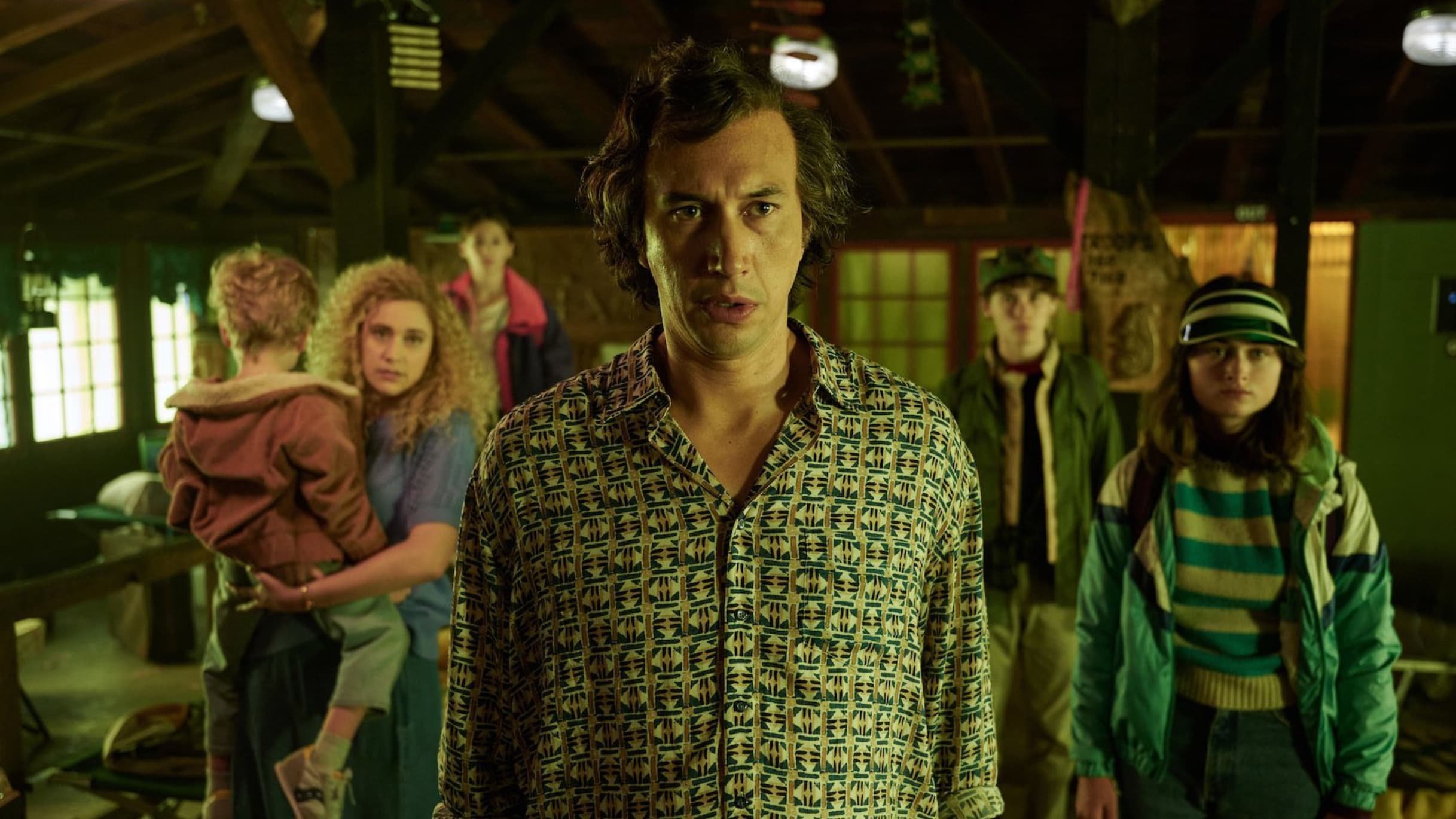Venice 2022: White Noise
VENICE / NETFLIXShould the supermarket, as described by Don Cheadle in White Noise, mark the place between rebirth and death, then Noah Baumbach’s latest feature has layers in common with George A. Romero’s feature, Dawn of the Dead. It is comparatively more than that. It alludes much more to those final days and the fight or flight response to a disaster more than first expected. Baumbach takes flight, his cast fighting against the thick and haunting prose of Don DeLillo, all to a marvellously well-realised background and creative process. It is that process the likes of Adam Driver and Greta Gerwig rely on in a feature marking itself quite clearly as a feature that comments on, around and frequently about, death.
Comparisons between the childhoods of Elvis Presley and Adolf Hitler are sounded. The youthful nature of life spilling over into wildcard conversations that, under other hands, would feel repetitive and strained. Instead, Baumbach brings life to his repertoire convincingly for the first time since The Squid and the Whale. His lack of family dissolution, or rather, the engagement with it and the understanding process that comes from the family unit, is as touching as it is unexpected. Unexpected, because to see DeLillo’s work adapted this way is startling. Despite cutting through with brighter colours and operatic that blend archive footage of Hitler with a veiled Driver, haunting his way through a classroom, it still manages to hold within it the serious horrors and twists which made the written text so engrossing.
Driver gets more than his fair share of screentime and makes good work with it. Electric work in a performance adapting Jack Gladney to the screen. His fears are his audiences. Bumps in the night, visions of something awry and a sincere desire to tighten the family unit, despite Baumbach failing to show much of a dissolution between anyone but husband and wife Babette Gladney (Greta Gerwig). Distance is the key, trauma and tragedy is the red herring. A catalyst for a new discussion marked by that Dawn of the Dead feeling. Is everyone truly shuffling along with no end in sight? It would appear so. As harrowing a thought that is, White Noise successfully creates and adapts that line of reasoning and fear under the banner of bigger exploration of character and scene. Make no mistake, Baumbach has marked his first truly stunning visual component, and it layers well with his adaptive qualities.
A creative renaissance for writer Don Delillo was marked by a need to understand the mortality that comes from fractured living, and to avoid it is unjust. White Noise was his opus, and likely still is. Its adaptation was inevitable, with Baumbach a solid fit in bringing that anxiety, that fear, to the big screen. Gerwig, too, a catalyst for unnerving performances that muse well on a displacement felt by the powers of a mid-life crisis. Continuing on from their work together on Marriage Story, Baumbach and Driver pair for an elusive, mysterious feature that relies strongly, heavily, on the distance and unknowable creativity Gerwig provides. It is chilling in its discussion of death, rewarding in its light flutters of comedy and exceptional in its understanding of the family unit and how it can stick together through thick, thin and thunderstorms of acidic proportions.


